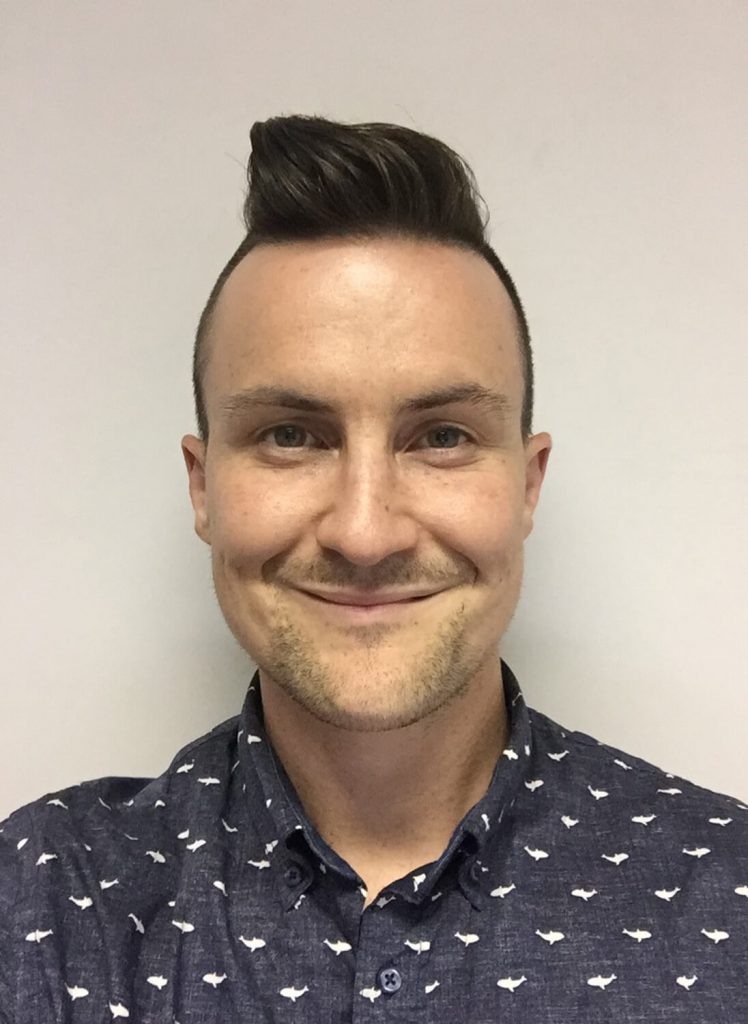
From a budding tennis career to a University Lecturer with a PhD, Sam Howe has been smashing it. He shares his story.
Sam, tell us about what it’s like working as a lecturer at University.
Sure. I teach Human and Exercise Physiology within the First Year College. At the same time, I’ve finished a PhD (sidebar – a PhD is the highest academic level award for a course of study). This involves research into the applications of wearable technology in collision-based team sports.
Ten years ago could you have imagined being a lecturer at a university?
Not at all. It wasn’t on my radar whatsoever. But I always had an interest in sport. So while I was never one of the top students going through high school, I worked pretty hard. I got enough marks to get into a Bachelor of Exercise Science at UTAS.
So did you have a specific career in mind?
I was thinking about being a sports physio, but to be fair, I didn’t know what that might entail. I was fortunate though that the course I studied at UTAS was pretty broad. I had some great lecturers, and I began to get interested in Exercise Physiology. So I started working with professional athletes at the Tasmanian Institute of Sport. I developed some basic strength and conditioning programs. That opened up my eyes to working with elite athletes.
At one stage, weren’t you considering a career as a professional tennis player?
That’s right. I started tennis pretty late. I don’t think I got a racquet in my hand until I went to Hutchins in Year 7. Then you couldn’t get the racquet out of my hand. I got to the Number Two ranked player for my age in Tasmania, when I was 16. I can remember playing Bernard Tomich in doubles. And of course, he went on to have a successful career as a tennis player. Back then I was playing about 30 hours a week. I was thinking about applying for a sports scholarship to a College in America, and then I got injured.
So what happened?
The injury was due to overuse. My body wasn’t developed enough for the amount of time I was playing. The actual diagnosis was a loss of bone marrow on my right bicep. It’s the same sort of injury Pat Rafter developed. Anyway, after talking with my dad who is a doctor himself, I had to forget about a professional tennis career.
How did you feel about giving up the idea of being a professional tennis player?
I was ok with it. It would have been a big commitment to pursue a professional tennis career. If you’re not in the Top 100 or so in the world, it would be a pretty tough life on the circuit. I’m very happy where I am.
Going back to your school days, what life skills do you think you were developing that you apply now.
Like I said earlier, I was never a top student, but I had a good work ethic, I was studious, and I had a good life balance. So I would try and do my assignments the best I could, get them in on time, ask questions if I wasn’t sure about anything. It was never about knowing everything. It was more the idea of learning something new and understanding it. So that’s something I’ve carried through my life, as well my love of being active and playing some sort of sport.
You spent some time working with the Melbourne Rebels. Is that correct?
I did. I loved that. Those boys hit hard! I got to learn of the energy professional rugby players spend at the critical breakdowns. I started recording their heart rates, and how players fatigued and recovered. It was fascinating, and it’s research I’ve continued at university.
What is it about your work as a university lecturer that you enjoy?
I enjoy the teaching side of things. I like helping students to achieve. To learn about exciting developments in sport and health. But then there’s the academia side of the work that I’m doing, and the opportunity for research. To have it published and reviewed. Also, to exchange ideas with other lecturers around the world.
What would you say to someone who isn’t sure about the career they should pursue?
Look at what you love doing. You’re going to have a working life of 40 years or more so you’re much better off finding something you’re interested in. For me it was sport and health. I can see how my love of these two things has played an integral role in my career path. Also, prepare yourself for plenty of twists and turns along the way. Don’t get too stressed when something doesn’t go to plan. Enjoy the journey.
